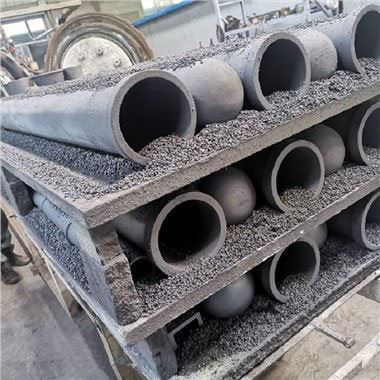
Currently, there are 18 silicon carbide manufacturers in China. These manufacturers provide a range of products, from wafers and substrate materials to epitaxial growth and packaging and testing. As a vertically integrated silicon carbide chain, they offer quality products and share the cost advantages of high volume production.
Today, China is the largest producer and exporter of silicon carbide in the world. The country produces over a million tons of silicon carbide per year and exports it to more than 80 countries. However, the capacity utilization rate has declined significantly and is below 50 percent. In 2015, the total output of silicon carbide in China was 1.02 million tons, and in 2016 the figure was estimated to be 1.05 million tons, with capacity utilization rates around 47.7 percent.
Despite the growing demand, there have also been challenges associated with the production of silicon carbide. The COVID-19 pandemic has hit the global economy and the silicon carbide industry has suffered. As an example, this pandemic has made people reluctant to buy basic items, including silicon carbide. However, the pandemic also forced silicon carbide manufacturers to retool and switch to producing masks and other personal protective equipment. Despite the challenges, the industry is expected to rebound during the forecast period.

Chinese companies are increasingly entering the bulk SiC IP landscape. A high proportion of Chinese applications in this field are for MOSFETs. This is an indication of the difficulty in developing such a technology. Leading Chinese patent applicants, including San'an Optoelectronics and Wuxi Xinjie Energy, have initially focused on developing the technology for diodes. However, with the growth of the field, there is a much tighter network among Chinese IP players in the field of devices and circuits.
The China market is predicted to double by 2025, reaching 16% of global demand. Companies vying for a share of the global market include BYD, NIO, Xpeng and Li Auto. In addition, telecom giant Huawei is eyeing the SiC market for its 5G infrastructure business.
As a promising material for power devices, silicon carbide is seeing a lot of attention in China. These high-voltage devices are useful in new energy vehicles, charging piles, solar and wind power, military electronics, and smart grids. Chinese companies are jumping on this bandwagon. Two companies in particular are focusing their efforts on the power device business.
Both Chinese companies have established operations or formed alliances with domestic vendors. For example, China's Zhenghai Group and Japan's Rohm recently signed a joint venture to develop power modules based on silicon carbide. In addition, China's Huali has two fabs, one of which is 28nm, and another capable of 14nm. Huawei has also announced plans to set up a fab in Shanghai.

Write a Message